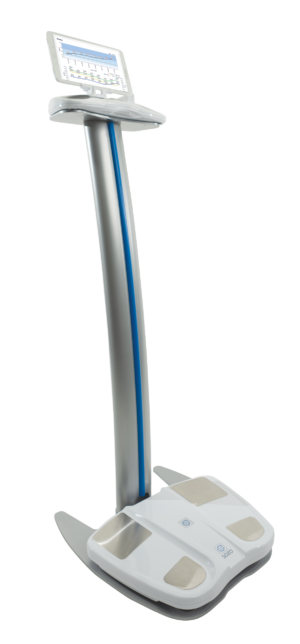
The Food and Drug Administration granted breakthrough device designation to Impedimed’s Sozo device for kidney failure. The company’s bioimpedance spectroscopy device uses a mild electrical current to measure users’ body composition, and in this case, it would be used to come up with a more precise measurement for how much fluid should be removed during dialysis.
The current standard of care is simply to measure changes in weight between appointments. But this is a crude tool, and can miss other causes for weight fluctuations. For example, some patients with chronic kidney disease develop protein energy wasting, where they’re losing muscle mass but retaining fluid. Removing too much fluid or too little fluid can be bad for patients.

Impedimed’s SOZO Device. Photo credit: Impedimed
“They’re looking for a fast, highly accurate, reliable way of knowing how much fluid to remove off that patient every session,” Impedimed CEO Rick Carreon said in an interview.“…Your ability to remove fluid at a lower rate in a more precise manner can extend lives and improve outcomes, and benefit patients over time,” he said.
The FDA’s Breakthrough Device Designation is reserved for devices that could provide more effective treatment for life-threatening or debilitation conditions. It would allow Impedimed to work closely with the agency for a speedier review.
The company had been planning to seek breakthrough designation for some time, Carreon said. Its device has already gotten a CE mark in Europe for managing patients with renal failure.

A Deep-dive Into Specialty Pharma
A specialty drug is a class of prescription medications used to treat complex, chronic or rare medical conditions. Although this classification was originally intended to define the treatment of rare, also termed “orphan” diseases, affecting fewer than 200,000 people in the US, more recently, specialty drugs have emerged as the cornerstone of treatment for chronic and complex diseases such as cancer, autoimmune conditions, diabetes, hepatitis C, and HIV/AIDS.
Impedimed has four other clearances with the FDA, including using its device to detect lymphedema in cancer patients.
In the future, Carreon said he hopes to see the tool expand beyond a clinical assessment to a broader digital health platform, bringing this information into dialysis clinics’ electronic health records. For example, they could compare the performance of one clinic to another, and see if they are getting better outcomes, or if more services are needed, such as nutrition counseling.
“If you can see one clinic that’s more successful, and learn from them, that’s where we see population health and dialysis really start to compound,” he said.
Photo credit: saengsuriya13, Getty Images












